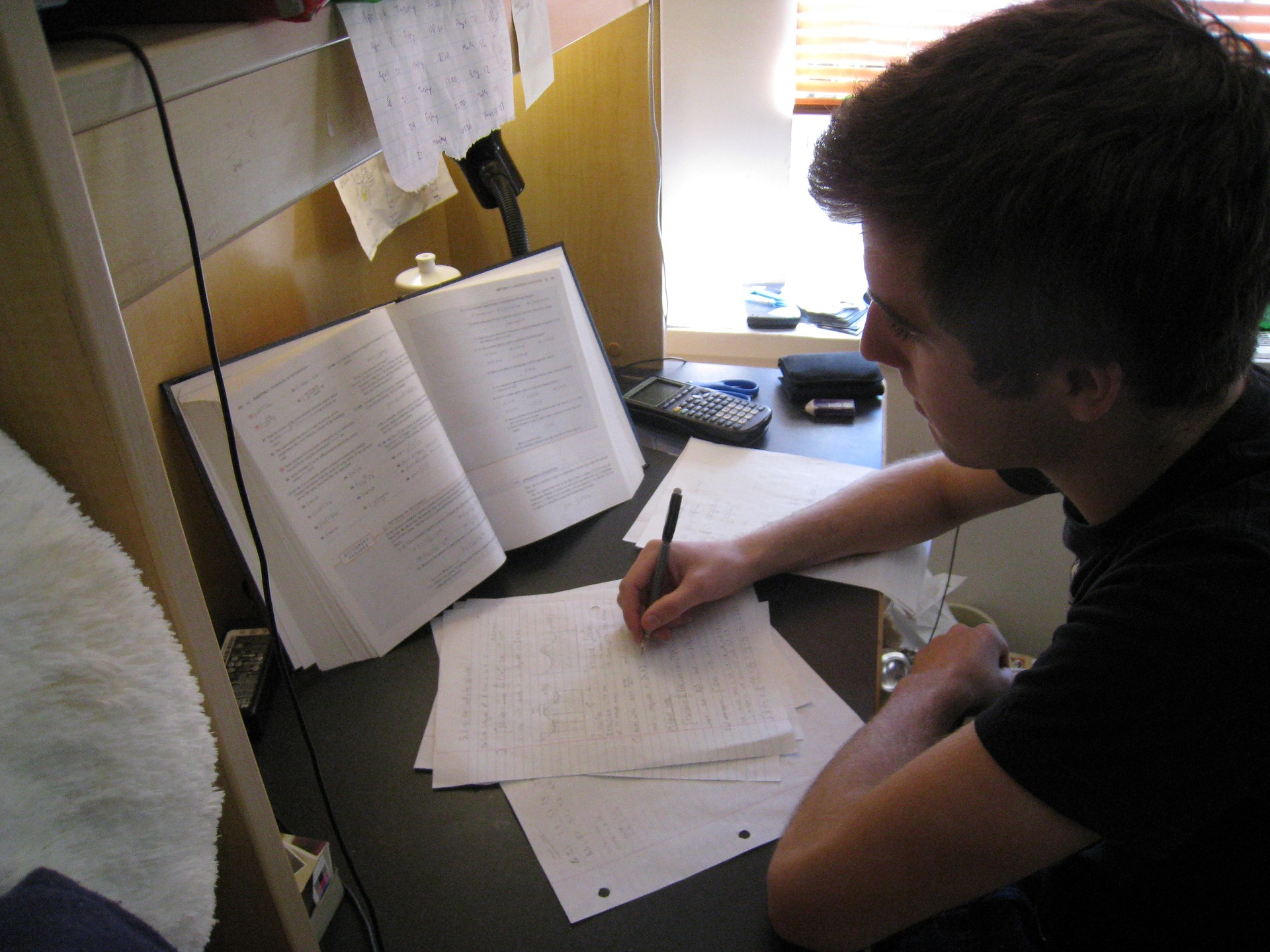The first online exams are behind us. At Aerospace Engineering 75% of the exams went ahead. How do students and teachers think it went?
(Photo: janeb13 / Pixabay)
Online exams. It is taking a lot of getting used to. Delta asked five TU Delft students about their experiences and got them to share some tips & tricks.
First year student Eliot Watson mostly found the process leading up to the exams complicated. “The information was spread around different places. There were announcements in Brightspace and we got various information sheets and then, in another announcement, we ultimately read that the process was going to be completely different.” Watson was afraid that he had not understood the protocol well and that he would submit answers that the system would not recognise. “I was more worried about submitting the answers than about my answers themselves.”
Putting up your hand online
At times, there was also confusion during the exams. Maneesh took the Orbital Mechanics exam. Normally he would ask the teacher a question directly, but now he had to do it on Brightspace. “I would have preferred to have used Zoom or another platform so that all the students could hear the question and answer in one go. Now I had to wait for an answer on the Brightspace forum.”
Ron Noomen, Orbital Mechanics teacher, is happy with this feedback. “In ‘normal’ exams in exam halls, students can put up their hands and ask questions. If we think it’s useful for the other students to know the answer, we do a general announcement to the hall. We tried to offer this facility on Brightspace, thinking that other students could read the answers that we gave. We didn’t think about Zoom.”
Finding a way that worked
For third year student Afonso Tuna, this exam period literally involved finding a way to do exams that worked. He lives with his partner who is doing the exact same study programme in a small studio. “As we expected, the rules that were published said that you had to be alone in the room to do the exam. In our case, we couldn’t even do that and, on top of that, we were doing the same exams.” Tuna and his partner contacted the teachers to try to find a solution for their unique situation. “Luckily, all the teachers understood the situation and responded well and worked with us to try to find solutions.”
Despite them doing their exams in the same space, there was no live online proctoring (remote invigilation). “But there were other checks. We had to work out some of the questions in writing and could discuss some questions and answers on Skype.”
‘We are people, not machines’
While everyone had to adapt to the current situation, studying at home and doing online exams was a big challenge for third year student Mauryze Brug. “I have an autistic spectrum disorder and it took a while before I felt comfortable with the new system. Having to study at home affected my study plan.” Brug also saw that the exam was much longer than usual. “It’s understandable because it was an open book exam. What was vexing was that I had problems uploading the photos of my calculations. The system even threw me out at a certain point. It took almost half an hour before the professor could log me in again.”
Brug understands that it was not an easy situation for either students or teachers. Still, he would have appreciated the exams being held a week later. “It felt as though everyone was under pressure to make sure that the original course programme went according to schedule. I hope that when assessing the exams, the teachers factor in the effects that this situation has on the students. After all, we are people, not machines.”
Feedback round
Noomen says that his faculty has done everything it can to avoid as much study delay possible. “Especially to avoid having students have to catch up on exams in Q4 or, even worse, in the summer months or Q1 of the new academic year. Now they can concentrate on their other subjects. I think that we actually did quite well. I believe about 75% of the exams in our faculty went ahead, and that’s a good score.” He emphasises that there will be a feedback round with students. “Then we can look into these sort of comments and at what we can change for Q4. Everyone has to get used to this, and we are not yet finished with the whole corona story.”
‘Make sure that you leave enough time to upload your answers’
After Offshore & Dredging Engineering master’s student Carmen Liu finished the Structural Dynamics open book exam, she noted a few tips and tricks for her fellow students.
- Make sure that you leave enough time to upload your answers. Scanning and submitting them need planning and discipline. If you don’t submit your answers on time, you will only get a 1. I allowed at least 15 minutes to do this.
- Good lighting is important, especially for scanning your answers by telephone.
- Make sure you have enough paper to write down your answers and to make notes.
- If you may open PDFs on your laptop, open all of them in advance. If necessary, borrow another laptop from a housemate or get hold of a second screen.
- In open book exams, use the space you have. I stuck 20 or 30 pages onto the walls which had slides, mock exams and how I worked things out.
- Let your housemates know that you are doing an exam so that they are quiet and that the internet connection is not overloaded by streaming films in HD. Nothing is worse than an unstable connection just when you are uploading your answers.
Do you have a question or comment about this article?
m.vanderveldt@tudelft.nl


Comments are closed.